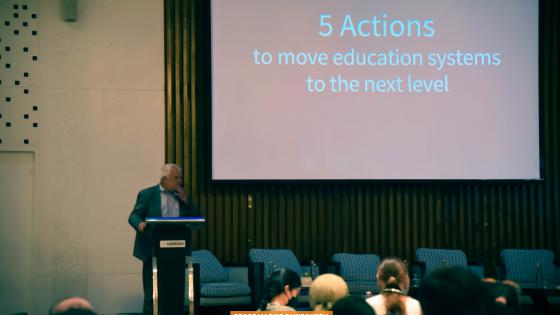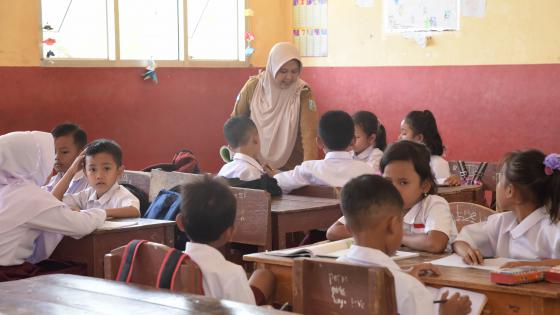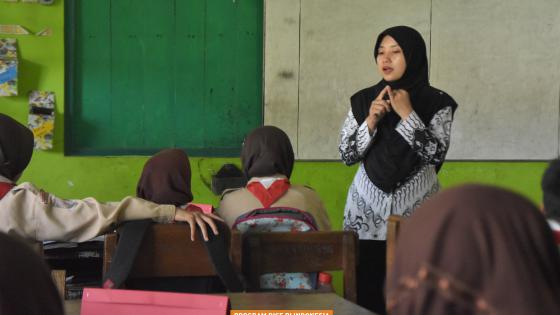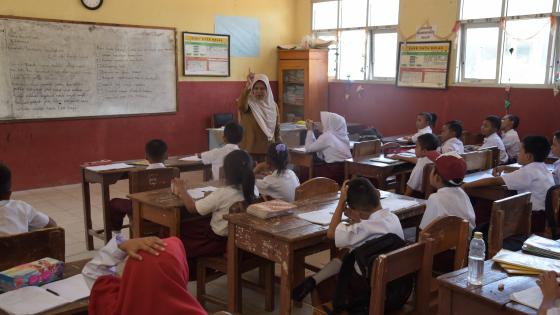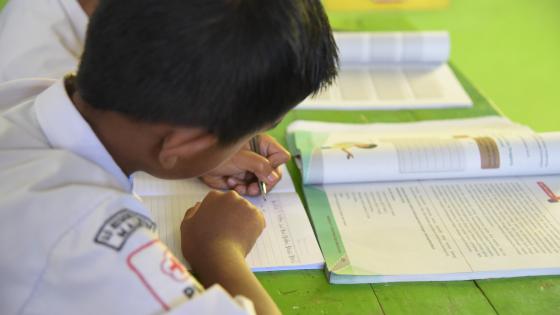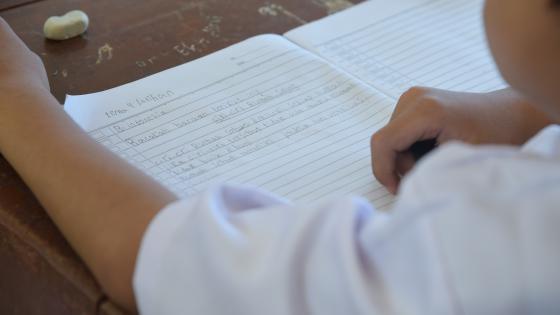Photo illustration: Novita Eka Syaputri
Indonesia has made remarkable progress in education over the past decades. Net enrolment rate is near universal (for basic education)1, the ratio of teachers to students is ideal2, and the state has allocated a minimum of 20% of the State Budget for education.
However, the progress did not include improvement in the quality of education. Like many developing countries, Indonesia is in a learning crisis. National and international assessments, such as the Indonesia National Assessment Programme (INAP) and Programme for International Student Assessment (PISA), confirm that the improvement of Indonesian students’ learning has been too slow and even tends to stagnate at the bottom.
A Learning Profile compiled by RISE researchers shows that Indonesian students’ numeracy skills have been declining. The Learning Profile uses data from the Indonesia Family Life Survey (IFLS) 2000, 2007, and 2014, which represent 83% of the population in Indonesia. The low ability in numeracy extends to adult respondents, most of whom were unable to solve basic fraction problems (equivalent to 4th-grade competency). This means that age increase does not guarantee improvement in numeracy skills—in fact, the skills can even decline.
Clearly, education challenges in Indonesia today are unlike several decades ago. After successfully improving access to education, the government must shift their focus to the delivery of quality education to move forward. The government must ensure that children in school gain the foundational mastery that can be built on.
It is crucial to focus on improving students’ foundational skills: literacy and numeracy
Students who complete basic education should have a good mastery of foundational literacy and numeracy skills. But the Indonesian Learning Profile compiled by RISE researchers points out the low probability of school-age students mastering foundational numeracy materials, such as those in IFLS. Although students get to the next grade, their learning improvement in between grades is low.
Foundational literacy and numeracy skills are not merely basic knowledge but an understanding of concepts and how to apply these concepts in everyday life. By mastering foundational skills, students can more easily understand and master the skills taught in subsequent grades. For example, to understand multiplication and division, students must first master the concept of numbers. If students passed this process incompletely, they would not have the necessary comprehension to learn multiplication and division. Consequently, as shown in the Learning Profile, many adults could not answer foundational numeracy problems correctly, such as 1/3-1/6.
Accordingly, the education system must commit to ensuring each student in school attain a deep mastery of foundational literacy and numeracy skills rather than just being able to read, write, and count. Mastery of these foundational skills will help students develop logical thinking and reasoning, understand the concept of numbers, and be proficient in applying basic math operations to solve problems in everyday life.
Ensuring that children master foundational literacy and numeracy skills must be the core purpose of the education system as well as a shared commitment of all stakeholders, including the central government and regional governments. But such a purpose is only possible to realise by first having a common understanding of the actual root of the problem: low quality of education. RISE studies in Vietnam and India show that the way to success is not smooth because it requires actors in the education sector to change their priorities and actions. Hence, the actors must commit together to make sure students in school receive quality learning to properly master foundational literacy and numeracy skills.
Actions to fight learning crisis
RISE Programme in Indonesia has carried out studies since 2017 to identify the root causes hindering the improvement of quality education in Indonesia. The studies also examined how Indonesia’s education system can overcome the longstanding learning crisis.
With nearly all Indonesian children now in school, how can we ensure that quality learning does occur and that the children will master the skills appropriate to their grade levels? The following five actions are drawn from the findings of RISE studies in Indonesia and other countries.
- Commit to foundational learning
- Measure learning regularly, reliably, and relevantly
- Align systems around learning commitments
- Support teaching
- Adapt what you adopt as you implement
These five actions were presented by RISE researchers in the workshop “Fighting Learning Crisis, Building Foundational Learning”, which was held on 2 August 2022. Watch the recording of the event here.
“Now that most children are attending school,
the focus must shift to learning in school.”
#FromSchoolingToLearning
Let’s help RISE disseminate these 5 Actions to education policymakers and stakeholders so we can fight learning crisis together! Visit http://bit.ly/RISE5Actions to know more about this campaign.
1 In School but Not Learning: A 2000–2014 Analysis
2 Potret Pendidikan Indonesia: Statistik Pendidikan 2018


